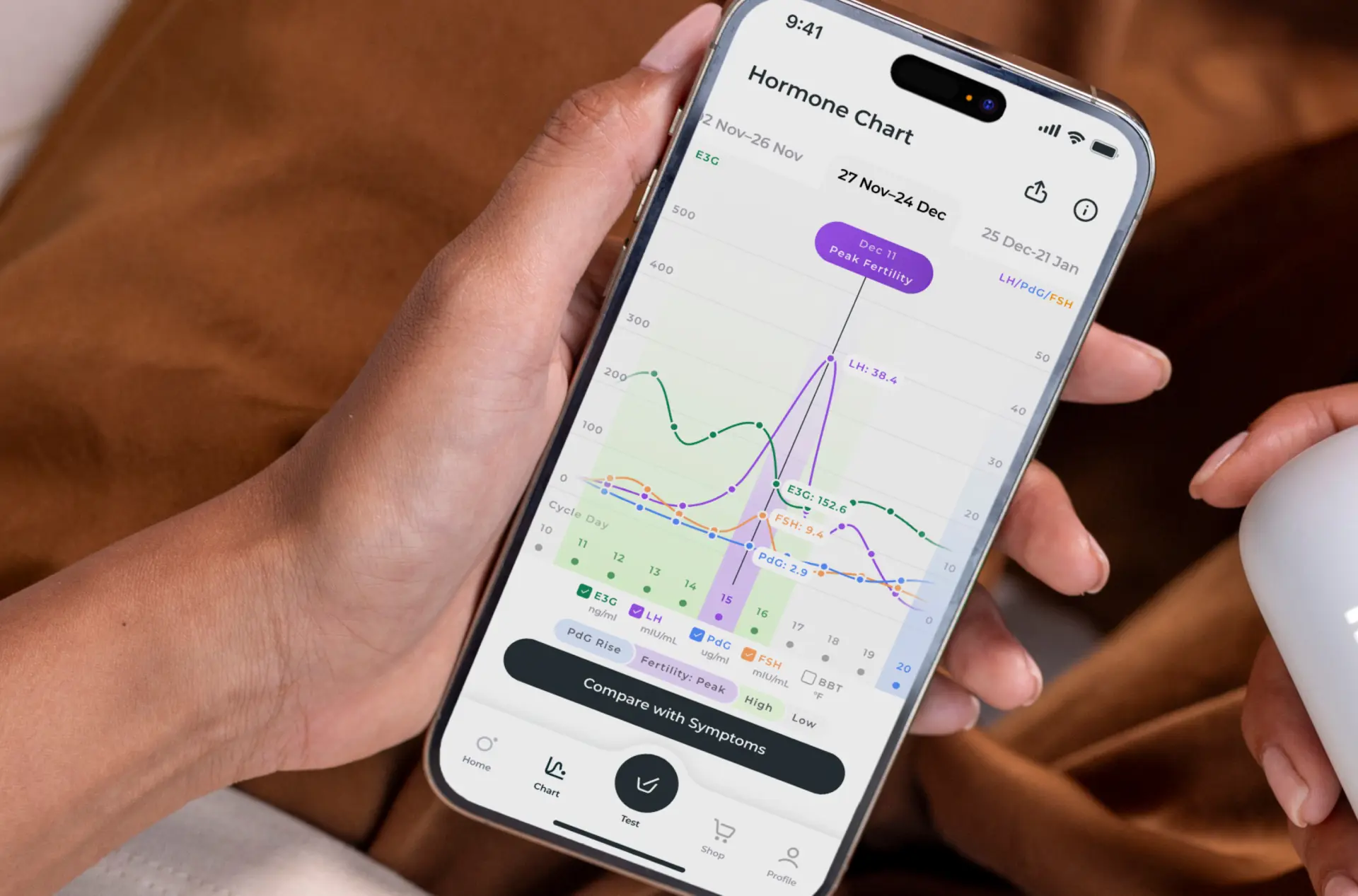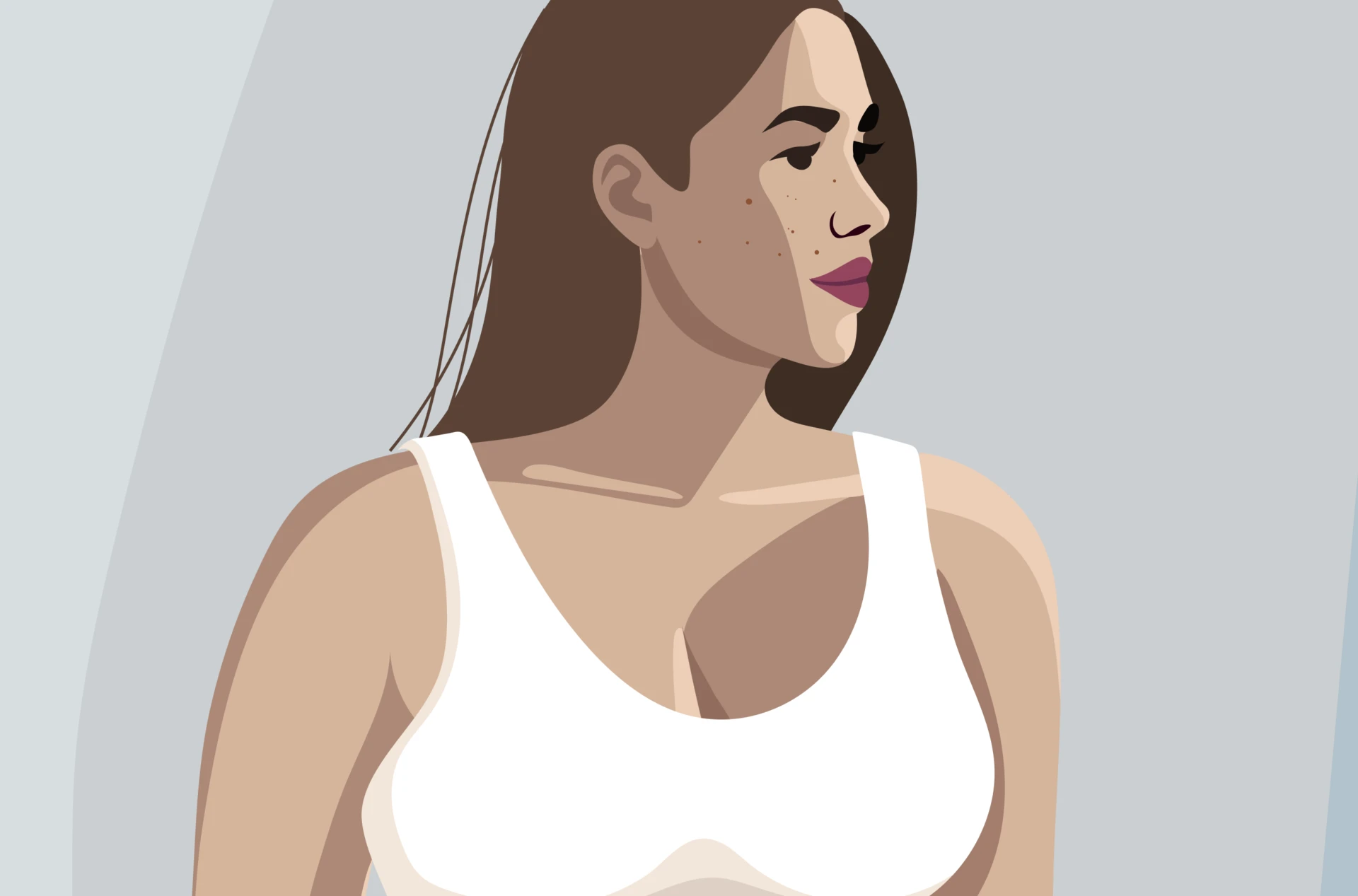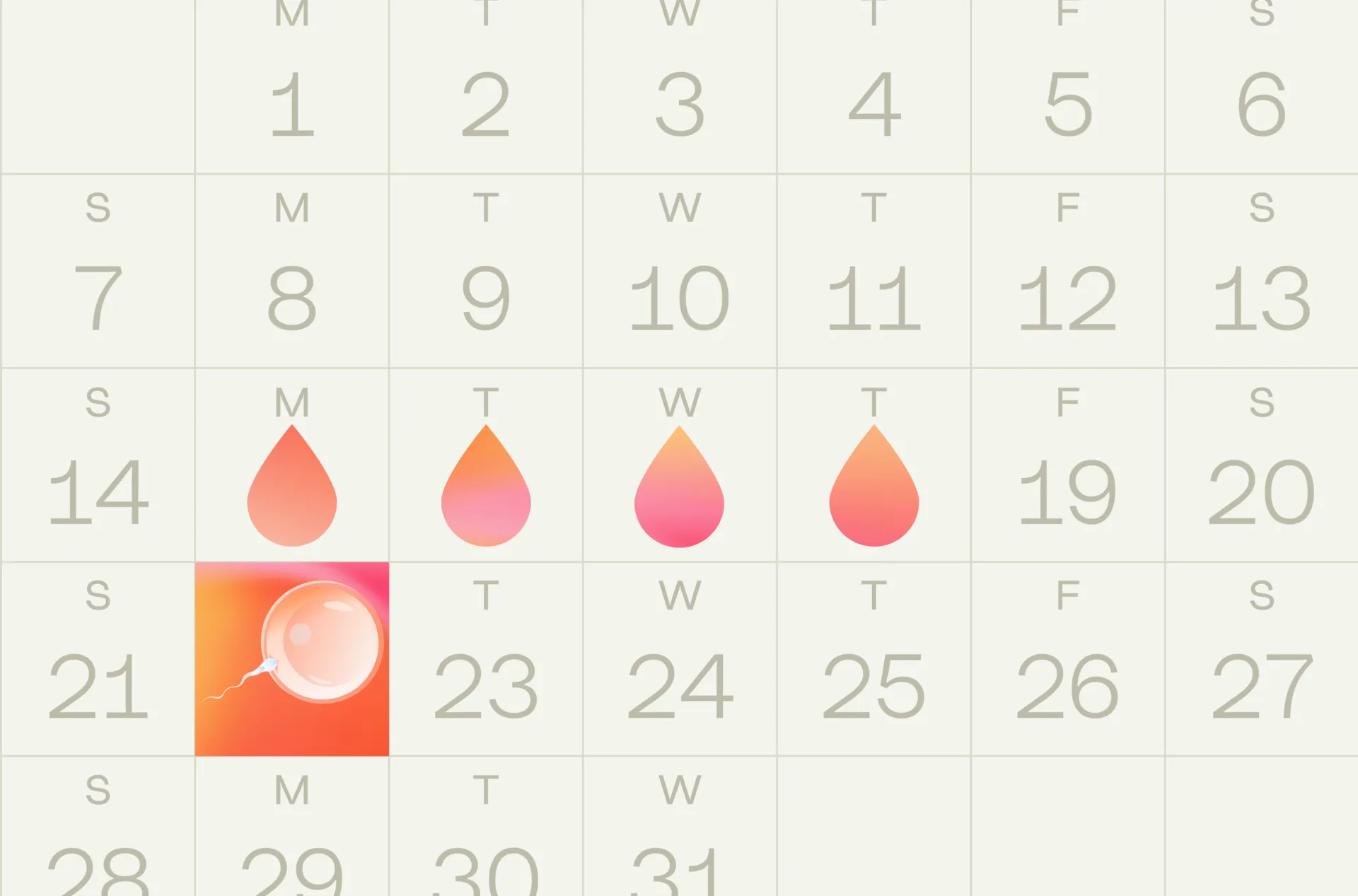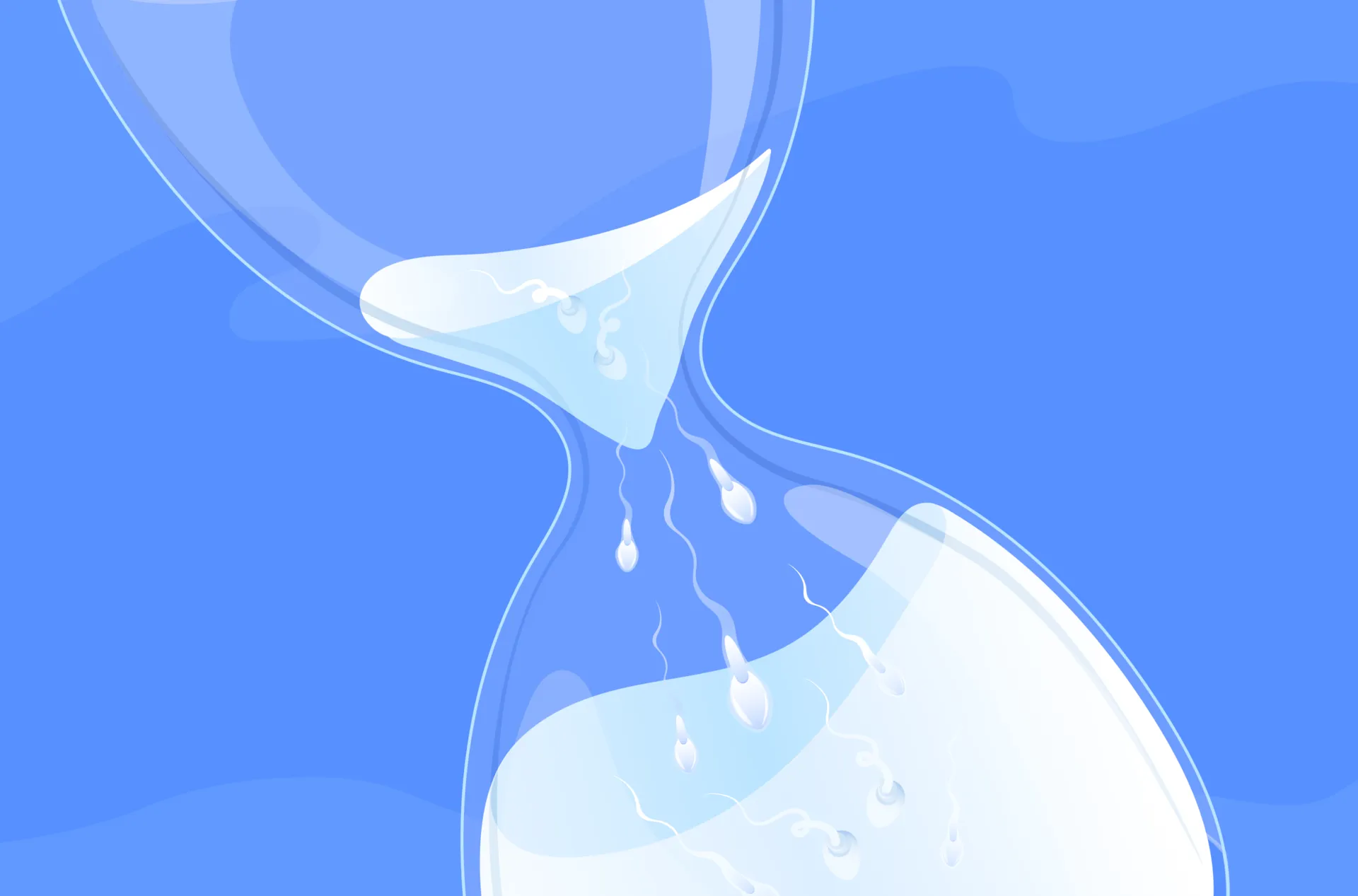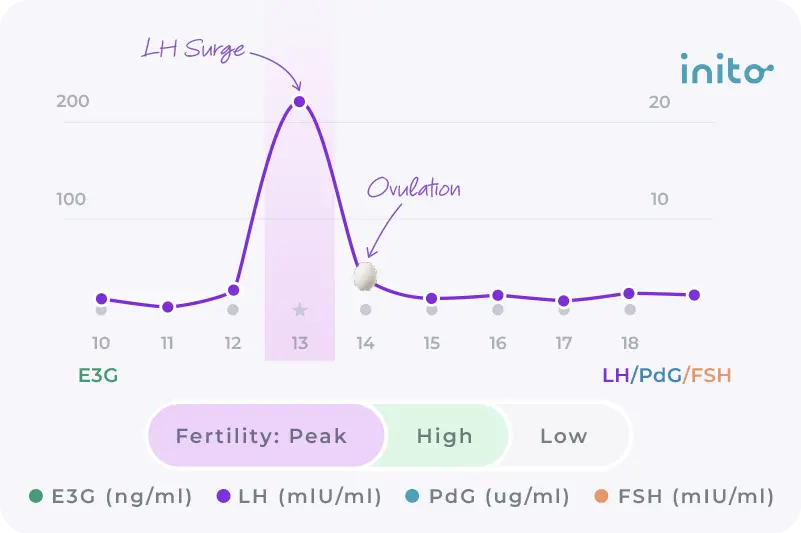Content table
Getting off of birth control and having symptoms such as irregular periods, acne, or excessive hair growth? You may be concerned about “post-pill PCOS symptoms.”
Even though you may have heard people talk about pill-induced PCOS, there’s a bit more to it than meets the eye. In actuality, birth control doesn’t cause polycystic ovary syndrome (PCOS). And in some cases, birth control is used to help manage PCOS symptoms.
So where did this myth of developing PCOS from birth control pills come from? And what’s the truth about birth control, PCOS, and fertility? Keep reading, and it will soon become clear.
Takeaways
- Post-pill PCOS is a myth that stopping birth control causes you to develop polycystic ovary syndrome.
- Hormonal birth control doesn’t cause you to have PCOS symptoms. But it’s often prescribed to help treat symptoms of PCOS like irregular periods and acne.
- The progestin and estrogen in hormonal birth control help lower the amount of androgens.
- Post-pill hormonal changes can cause symptoms that mimic PCOS symptoms. Some of these include missed periods, anovulation, fertility challenges, and unwanted hair growth.
- Post-pill symptoms will eventually go away after several months (if you don’t have an underlying condition).
- The root cause of polycystic ovary syndrome is not yet known. But the hormonal imbalances PCOS is known for may be caused by both your genes and your environment.
- If you think you have PCOS symptoms or have been facing fertility challenges, talk to your doctor. There are ways you can be treated after a PCOS diagnosis.
What is post-pill PCOS? Can birth control cause PCOS?
The term “post-pill PCOS” refers to developing symptoms after stopping hormonal birth control that are typically seen in PCOS patients.
However, post-pill PCOS is not an official medical condition. There’s no scientific evidence to prove that the pill causes polycystic ovarian syndrome. But let’s better understand why people might think it does.
Here’s what we know to be true about PCOS and stopping the pill:
You may experience some abnormal symptoms after stopping the pill. These may include irregular periods, acne or oily skin, fertility challenges, or weight changes. There’s even a term (post-birth control syndrome) to refer to the symptoms women may experience after stopping hormonal birth control.
But these symptoms are caused by hormonal fluctuations or other underlying conditions. They’re not caused by the pill. Since hormonal birth control works by altering your hormones though, it’s easy to see the mix-up.
Another thing to keep in mind is that doctors may have originally prescribed birth control pills to help manage PCOS symptoms. Especially acne and menstrual irregularities.
In these cases, it’s possible that the pill was actually hiding an underlying condition (like PCOS) that was causing the symptoms in the first place. But once you stop taking birth control, the symptoms surface again.
In fact, one study found something interesting. Nearly half of the patients who had post pill amenorrhea (no periods) showed signs of irregular menstruation prior to starting birth control.
So if it’s not the pill that causes PCOS, what is responsible for PCOS symptoms? We’ll go over this next.
What actually causes PCOS?
This may not be the answer you’re hoping for. But as of now, the true underlying cause of PCOS is a mystery.
That said, there’s general agreement in the medical world that PCOS occurs because of both environmental and genetic factors. And it’s linked to having an excess of male sex hormones called androgens.
So how is this condition related at all to ending birth control? Keep reading, and it will begin to make more sense.
What’s the relation between PCOS and birth control?
With PCOS, hormonal signals that are supposed to help regulate your menstrual cycle don’t work properly.
From there, a domino effect of cycle disruptions and symptoms begins.
Here are specific ways your cycle gets interrupted when you have PCOS:
- The ovaries don’t properly interpret the necessary hormonal signals from your brain.
- You end up with an excess of androgens (male hormones).
- This translates into polycystic ovaries, not ovulating regularly (anovulation), and having irregular periods.
- It can also lead to other symptoms like unwanted hair growth, acne, and insulin resistance.
To counteract these symptoms, doctors will often prescribe birth control as part of a PCOS treatment plan.
Here’s a brief look at how birth control is able to combat hormonal imbalances caused by PCOS:
1. Oral contraceptives contain progestin (a synthetic form of progesterone).
The progestin helps suppress luteinizing hormone (LH) from being released when it’s not supposed to.
It also helps decrease the amount of androgens produced by your ovaries and adrenal glands.
2. Many oral contraceptives also have an estrogenic component.
The estrogen part of the pill helps boost the amount of sex hormone-binding globulin (SHBG).
SHBG is vital for regulating the amount of sex hormones (like testosterone) that circulate in your body. By binding to free testosterone, it reduces the amount of testosterone circulating in the bloodstream.
Now that you understand how birth control helps with PCOS, let’s re-visit those pesky post-pill symptoms you’re experiencing. Because maybe you’re concerned about how much longer you’ll have to put up with them. (You’re not alone in your frustration by the way.)
Do post-pill symptoms go away?
Yes, after you stop birth control, you can expect these abnormal symptoms to go away. (As long as you don’t have PCOS or other underlying conditions that impact your menstrual cycle). But it could take a bit of a waiting period.
For most women, it takes about 3 to 6 months for menstrual periods to recalibrate after birth control. And if you had irregular cycles before going on the pill, it could take a bit longer than that.
If you’re having concerns about your cycle though, talk to your doctor sooner rather than later. Especially if you’re trying to conceive.
If you’ve been TTC for a year or haven’t had a period in over 3 months since stopping hormonal birth control, you may need treatment.
Know more: Chances of Getting Pregnant After Stopping Birth Control
Dealing with these cycle interruptions and hormonal changes can be upsetting. So try to be gracious with yourself. And if you’re worried that you might have PCOS, keep reading to see how you can tell for sure.
How to tell if you have undiagnosed PCOS?
If you’re still freshly off of birth control, keep an eye out for:
- Anovulation – (no ovulation)
- Irregular periods (length of bleeding and length between periods)
- Amenorrhea (no periods at all)
- Weight gain
- Acne
- Hirsutism, aka abnormal hair growth (like on your back, face, or chest)
- Fertility challenges
While many of these symptoms may be fairly noticeable, the one that can be tricky to tell is if you’re ovulating.
So how can you be sure if you’re ovulating or not? Try using Inito’s fertility monitor which confirms ovulation. (FYI: This anovulation alone doesn’t diagnose you with PCOS, but it’s helpful information to have about your cycle.)
Know more: Ovulation Tests and PCOS: Can You Trust the Accuracy?
Nodding your head yes to several of these symptoms? Or struggling to get pregnant after trying for a year? It’s worth talking with your doctor then.
They can assess your symptoms, do an ultrasound, and check your androgen levels. All of this will allow them to either rule out PCOS or give you an official PCOS diagnosis.
And if you do end up being diagnosed with PCOS, don’t lose hope. Even if you’re trying to conceive, there are still ways you can be treated for PCOS symptoms. And it is still possible to have a healthy pregnancy with PCOS.

FAQs
Yes, you can definitely conceive with PCOS. But due to how PCOS hormonal imbalances affect ovulation, it’s likely to take longer. It may also require some lifestyle and dietary changes or even fertility treatment.
Know more: Get Pregnant With PCOS: Your Complete Guide
Women with PCOS who stop taking birth control may notice the return of symptoms they had before using birth control. This can include irregular or absent periods, acne, weight gain, and trouble ovulating.
No, birth control is not a cause of polycystic ovary syndrome. The exact cause of PCOS is still a medical mystery. But stopping hormonal birth control causes hormonal fluctuations that may cause PCOS-like symptoms.
Pregnancy does not cause polycystic ovary syndrome. PCOS develops around the time of puberty or early adulthood. So if you have PCOS, you may notice the symptoms return or get worse postpartum.
This happens because pregnancy-related hormonal changes can temporarily relieve some PCOS symptoms. But after delivery, your hormones eventually go back to their natural levels. This is why if you already had PCOS, you’re likely to see your PCOS symptoms return.
Polycystic ovary syndrome (PCOS) and endometriosis are two different medical conditions. But it is possible to have both of them at the same time. In fact, about 7-8% of women who have PCOS have endometriosis as well.
Learn more: Endometriosis vs. PCOS: How to Tell the Difference
No, polycystic ovary syndrome is not an autoimmune disease. It’s an endocrine disorder that affects your hormones.
Was this article helpful?
- Differentiating Polycystic Ovary Syndrome from Adrenal Disorders – PubMed
- Follicular ovarian cysts appearing during progestin or estroprogestin oral contraception at low doses – PubMed
- What happens when you stop using the combined contraceptive pill? A qualitative study protocol on consequences and supply needs for women who discontinued the combined contraceptive pill in Germany
- Amenorrhoea after oral contraceptives
- Polycystic Ovary Syndrome: A Review of Treatment Options With a Focus on Pharmacological Approaches – PMC
- Approach to the Patient: Contraception in Women With Polycystic Ovary Syndrome | The Journal of Clinical Endocrinology & Metabolism | Oxford Academic
- Treatment of postpill amenorrhea with abdominal obesity by traditional Korean medicine treatment focused on pharmacopuncture and moxibustion





